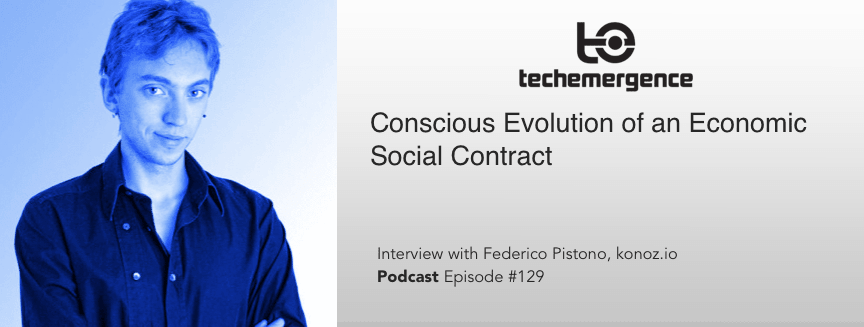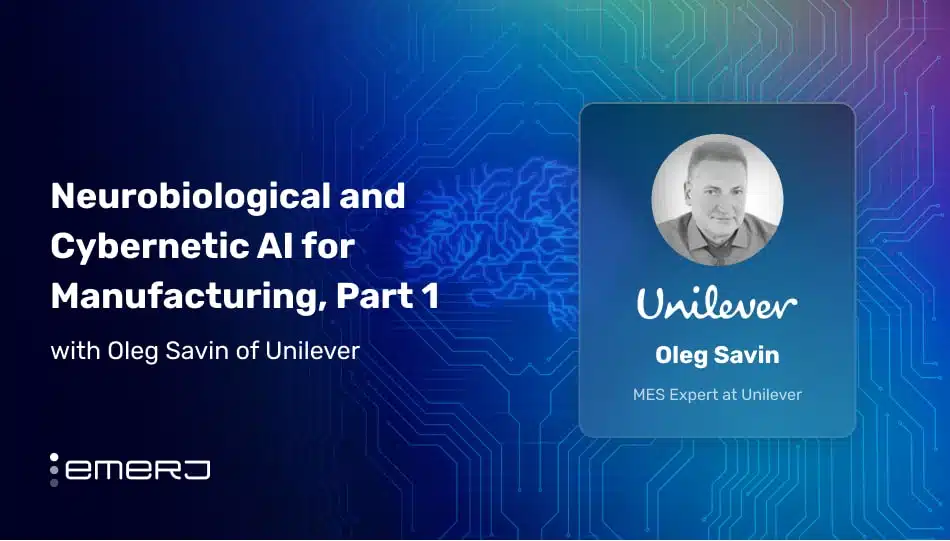Episode Summary: Most of society functions based on a general social contract i.e. we work to contribute to society and earn income to acquire goods. Those who can’t earn an income are required in some fashion to validate why.
In this episode with Federico Pistono, an entrepreneur, author, and futurist asks if this contract is the only way to exist as a society. In a more automated world, is this contract the best long-term structure for the common welfare? Pistono and I discuss what a future society might be like with an altered social contract i.e. a general minimum wage for all, how this might affect our approach to “work”, and the avenues for testing out such a contract in society today.
Guest: Federico Pistono
Expertise: Computer Science and Education
Recognition in Brief: Federico Pistono has 10+ years in a variety of IT fields, including IT Management and Human Machine Interaction, and is also a sought-after speaker and award-winning journalist. He graduated with a degree in Computer Science from the University of Verona and is also a graduate of the Singularity University at NASA Ames Research Park. Pistono is an experienced grassroots activist who has founded multiple social movements and nonprofits worldwide to promote social sustainability. He is founder and CEO of kunoz.io, a free learning platform that collates the best material from YouTube channels. His recent book, “Robots Will Steal Your Job, But That’s OK, How to Survive the Economic Collapse and Be Happy“, is an Amazon best-seller.
Current Affiliations: CEO of kunoz.io, Science Advisory Boardmember TEDxBologna, Honorary President of Association Sustainable Society, Founder TEDxVerona, Founder Axelera, Founder of The Zeitgeist Movement (TZM) Italy.
A Social Contract Set in Stone
Federico Pistono, an entrepreneur, author and speaker with a futurist lens, has spent much of his time and research dedicated to figuring out how to build more sustainable economies, particularly in the wake of increased automation.
As a member of most any major global society today, says Pistono, a citizen must justify his or her place within a productive social organization. Humans earn an income to survive and have done so for hundreds, maybe thousands of years. If a person can’t earn an income for a particular reason, he or she is expected to justify why. The ability to survive without living on the outskirts of most any economy has to have justification, and usually this is in the form of labor.
In western economies, this system has worked well for the most part, churning out innovation and prosperity, though wage and employment gaps have always been an issue to some extent. Yet a new era seems to be approaching, one where the process of automation (much due to AI) is eroding jobs. In recent years, this has accelerated in more complex cognitive tasks, such as writing and legal work. “We have a paradigm where on one side of the market economy wants to automate for productivity, revenue, etc., but we lose jobs…we have less and less time to adapt as things speed up,” remarks Federico.
The rippling ramifications are already becoming obvious. Protests in France, where angry citizens, mostly taxi drivers opposed to the automating process of Uber, set cars on fire in the streets its just one example. “Imagine whatever is happening in France 100 fold in 5 or 10 years from now in almost all countries,” poses Pistono. It’s a sobering thought.
An Alternative Future?
As Federico sees it, humanity has two options – reconcile this unrest and potential chaos with the need for work, or break the existing social contract. The latter option could be a way to welcome change through automation instead of resisting and fearing ramifications like loss of income.
According to the 2013 Deloitte Shift index, 89% of people don’t like their jobs. On the flip side, unemployment has an associated negative stigma, a logical conception in our current system and a good deal of which may be due to social constructs (i.e. a person feels he or she can’t contribute, they don’t have the money to pay for basics such as rent, groceries, etc.) But what if we lived in a world where people didn’t have to take a job just to survive? What might happen?
Not everyone will want to become the next great film actor, says Federico; diversity of interests and choice is a strength of the human species. The important element to remember is that culture creates more of the same kind of culture. However we choose to incentivize, we will get more of that same behavior. If we incentivize work as we know it in different ways – such as more available time to spend with family, for example – there may be greater societal benefits to be discovered.
Of course, social changes don’t happen over night. One way to break this cycle, explains Pistono, is to offer some form of basic income or social dividend that creates a base line from which people can create new value on top of that base line. Aligning with the publication of this interview, an article in The Guardian announces the Dutch government’s decision to begin implementing a basic income plan.
Federico cautions that if such a change happened homogeneously to an entire population overnight, the consequences might be disastrous. “There needs to be a transitional period within communities where we try out different variations of social contracts, which will likely be very different, perhaps down to the level of districts (counties), with at least 10,000 people…we can then learn from these experiments and expand upon them,” he suggests.
Think of this transition as a slow “simmering” of a new culture. Pistono believes that if some basic needs are provided for, the people will need to figure out what to do with their time, to discover what they’re good at (as opposed to what they must do). These skills or talents might not be something that create monetary value, says Federico. For example, a person’s true passion might lie in volunteer work for various associations. Implementing a minimum income could be a catalyst for evaluating the value of human contribution.
Once such a system becomes part of a local culture – a town or city, for example, then graduates to a greater community – a county, and so on, the opportunity to change a grander mindset over time becomes more real. This slow, experimental approach opens up possibilities for alternative solution-finding, says Pistono, but society needs to be able to experience and experiment on these smaller scales.
Pistono claims that there have so far been 27 experiments of basic income in 13 countries, but only three can be considered “true basic income”, and only two of those experiments had more than 1000 people in the study (which is why, he says, we need more of these studies).
One of those two studies, known as “Mincome”, took place in Canada between 1974 and 1979. The government’s aim was to see if people provided with a basic income would work less, would spend more money on public bets (prostitution, drugs, etc.), and other hypothesized negative outcomes. In fact, the end results showed that people didn’t stop working, a significant difference was the fall of the hospitalization rate. Researchers hypothesized that people had more time to spend with family, friends, and their community, and were therefore less stressed, developed less sicknesses, and had fewer accidents on the street.
The other notable study took place in India, which is no stranger to extreme poverty. This experiment yielded similar results under different circumstances. Researchers found that basic income was the single most effective way to send little girls to school (something the government has tried to do – and failed at – for 40 years through various avenues). “This was the best incentive…give (some) money and let people self-organize, do structural fixes, get out of chronic debt, buy livestock, become entrepreneurs…people worked a lot more with basic income than without, which is completely the opposite results to what economists predicted would happen,” says Federico.
At first, Indian officials didn’t believe the numbers that came out of the United Nations Development Programming, the organization that funded the study, so they sent their own economists to look at the data – and found results even better than what the UN had reported, says Pistono.
Canada’s micro social experiment lasted about five years, while India’s lasted about 18 months. The Indian study in particular sparked huge interests, and the government is doing hundreds of these pilots throughout the country, says Pistono. The opposite reaction took hold in Canada; because the results were not what economists predicted, and the results were not analyzed or published until 2011.
“For more than 30 years, all of the western world kind of silenced these results (or had no idea that they existed),” says Pistono. He speculates that this silencing is mostly due to fears by governing officials, corporate heads, and other leaders, that such ideas will pick up stream and change the social establishment, that they will lose control, wealth, and familiarity.
But Pistono contends that there are exceptions. He mentions Johann Rupert, CEO of Richemont (a luxury goods supplier), who spoke at the Financial Times Industry Luxury Summit 2015. “He said what keeps him awake at night…is the unequal distribution and wave of automation that is going to keep increasing, and the social stigma that will be created from people…he said he will not buy luxury goods when his children’s classmates parents are getting laid off”.
It could be in reality, the “wealthy” will not be any worse off with a basic income-like system. There’s wide recognition that within our social fabric, the elimination of a middle class triggers society to crumble and collapse. “A strong middle class always leads to stronger society, and we have solid data (to support this claim),” says Federico. “What is clear on the other side…those who are fighting are those who don’t understand, who are afraid of change…any change might lead to a better situation or may be worse, and therefore they don’t want to take the risk.”



















